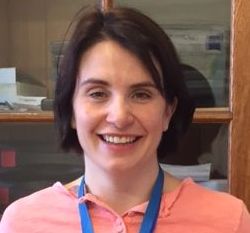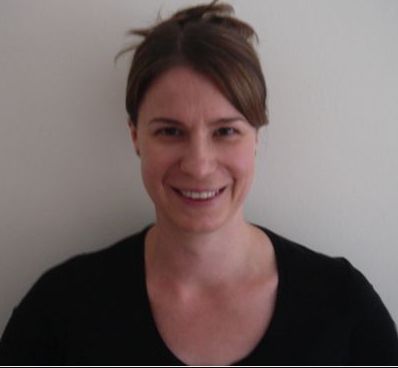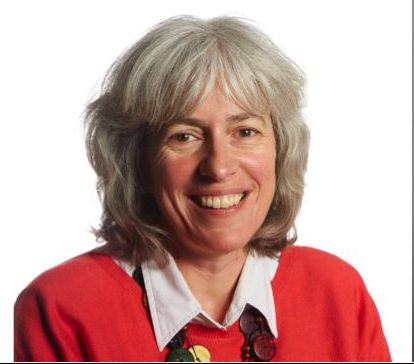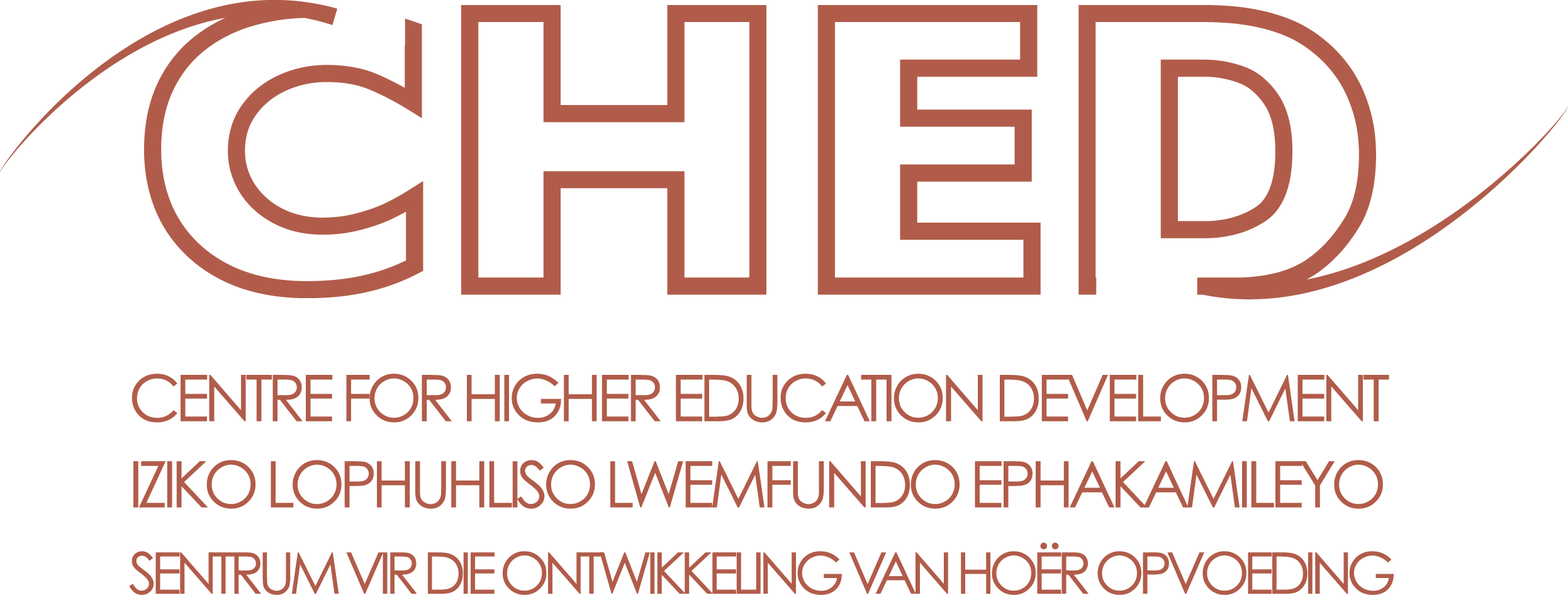-
Perspectives from South African MOOC Takers: Understanding Transitions In and Out of Learning and Work
(UCT Principal Investigator: A/Prof. Jeff Jawitz)

Core research team: (left to right): Tasneem Jaffer, Sukaina Walji, Janet Small, Andrew Deacon, Jeff Jawitz (PI) and Soraya Lester (research assistant).
The research project involves interviewing people completing the Massive Open Online Courses (MOOCs) created by UCT who live in African countries to deepen understands the value people see in open online learning opportunities. Many people are increasingly seeking to move between work and learning, between different disciplines of knowledge, and between different levels of learning. Understanding and supporting such transition pathways in and out of learning and work is important for universities who are serving increasingly diverse cohorts of students. Specifically understanding how people living in African countries, and particularly South Africans, make use of open online learning opportunities for these transitions is important to inform the development of what types of online education provision universities could offer.
Through the UCT MOOCs Project, we have data related to Massive Open Online Courses (MOOCs) from enrolments from across the world, which includes currently registered South African students and potential students. This research will focus on the Africans who have participated in MOOCs offered by UCT because comparatively little is known about this segment of students.
The core research question is ‘how do African MOOC takers, and specifically South African students, use open online courses to support transitioning in and out of learning and work?’
This research project aims to develop CHED staff’s understanding of the value and problems of accessing online support courses for people facing transitions in and out of learning and work and inform the development of more appropriate online offerings. CHED is being asked to give guidance to the University about the use of technology in support of the key goals of teaching and learning in the context of inequality. This research will enable us to better understand learners’ experiences and uses of online offerings. Our development of MOOCs, and ADP’s applications of online modes and platforms to expanding support services offer a unique opportunity to survey a large number of learners who have already engaged in some way with UCT’s online educational support offerings.
The research project runs from mid-2017 until end-2020, beginning with a pilot phase in 2017. In the pilot phase, the research team designed and tested both the quantitative online survey instrument and the qualitative research interview questions with a small sample of MOOC takers. Drawing on the experience of the pilot, we sent surveys to all UCT MOOC takers living in Africa to request an interview on their reasons for taking MOOCs and what they have valued from learning online and the challenges they have faced.
In 2018, we interviewed 58 participants, mainly working people, from African countries (a majority from South Africa) about MOOCs and making transitions. In our second phase in 2019, we interviewed a further 25 MOOC takers who were current students at UCT. The data gathered so far reveals very interesting information about how participants have seen MOOCs as providing value for the career advancement and study opportunities. In 2020, the final phase of the research will focus on triangulating the finding with two other stakeholder groups - employers, and academics who run postgraduate programmes.
The outputs of the project include understanding the needs of people looking at universities to study further and offer new insights into the provision of appropriate online support for those making transitions in and out of learning and work.
Soraya Lester serves as a research assistant. She has an MPhil in Monitoring and Evaluation and is currently registered for a PhD in Psychology at UCT.
Research outputs
Journal articles
Small, J., Deacon, A., Walji, S, Jaffer, T and Jawitz, J. (2019). Building capabilities: Using MOOCs to make transitions in work. Open Praxis, vol. 11 issue 4, October–December 2019, pp. 427–441. 2019 Open Education Global Conference Selected Papers DOI: http://dx.doi.org/10.5944/openpraxis.11.4.1027
Deacon, A., Walji, S., Jawitz, J., Small, J., Jaffer, T. (2019) Seizing opportunities: MOOC takers making time for change. Critical Studies in Teaching and Learning (CriSTaL): Vol 7 No SI (2019): Special issue: Teaching and Learning in Uncertain Times. Papers from the HECU9 Conference. http://cristal.epubs.ac.za/index.php/cristal/issue/view/13
Open Education Global Conference. 26-28 November 2019, Milan, Italy
Conference presentation
Small, J., Deacon, A., Walji, S., Jawitz, J., Jaffer, T, and Lester, S. (2019). Ready to succeed in life: Using MOOCs to make transitions in work (https://drive.google.com/a/uct.ac.za/file/d/1ay1AmCS7TWPDvtjKhI4_ZSG2upqIhYWI/view?usp=sharing)
Conference presentation promo video https://www.youtube.com/watch?v=dzCCBB9DABI&feature=youtu.be
World Conference on Online Learning 2019. 3-7 November 2019, Dublin, Ireland
Conference presentation
Walji, S., Deacon, A., Small, J., Jawitz, J., Jaffer, T., Lester, S. (2019). Making it Count: How MOOC Takers in African Countries Use and Value Their Learning: Considering the role of certificates. (https://drive.google.com/file/d/1wWVCF9RSd5c4Kf10szlFngqWnqwSnOfO/view)
CHED Research Seminar, 9 October 2019
Presentation: Perspectives from African MOOC takers: understanding transitions in and out of learning and work. Deacon, A and Small, J.
Online seminar for e/Merge Africa, 27 June 2019
Presentation: How learners in African countries are finding value in MOOCs Walji, S., Jaffer, T. and Jawitz, J. (https://emergeafrica.net/27-june-how-learners-in-african-countries-are-finding-value-in-moocs/)
CILT events lunchtime seminar, 2 May 2019
Presentation: Seizing opportunities: MOOC takers making time for change, Andrew Deacon,(https://docs.google.com/forms/d/e/1FAIpQLSdwGReXd7I_joKTIiweHSRZwbRY-JePqQ5qmCMnA1hpGcmAbg/viewform)
Contemporary Higher Education Conference (HECU9): 15-16 November 2018, Cape Town
Presentation:
Deacon, A., Walji, S., Jawitz, J., Jaffer, T. and Small, J. (2018) Seizing opportunities: African MOOC-takers making time for change.
Higher Education Learning & Teaching Association of Southern African (HELTASA) Conference, 20-23 November 2018, Port Elizabeth
Presentation:
Jawitz, J., Jaffer, T. and Deacon, A. (2018) MOOCs in and out of the curriculum.
13th International Conference on eLearning (ICEL) 5-6 July 2018, Cape Town
1. Wrapping of a Social Innovation MOOC
Deacon, A., Jaffer, T., Jawitz, J., Small, J. and Walji, S. (2018), CILT, University of Cape Town, South Africa
- Presentation
- Paper Published in the Proceedings of the 13th International Conference on e-Learning ICEL, Cape Town Peninsula University of Technology, Cape Town, 5-6 July 2018. Edited by Professor Eunice Ivala
2. Understanding How Participants Use Open Online Courses for Transitions
- Walji, S., Deacon, A., Jawitz, J., Small, J. and Jaffer, T. (2018), CILT, University of Cape Town, South Africa
- Presentation
- Paper Published in the Proceedings of the 13th International Conference on e-Learning ICEL, Cape Town Peninsula University of Technology, Cape Town, 5-6 July 2018. Edited by Professor Eunice Ivala
Coursera Partners Conference, March 2018, Arizona
Poster:
- Walji, S., Deacon, A., Jaffer, T., Jawitz, J., Small, J. (2018). Transitions for the Future: How African learners value MOOCs from the University of Cape Town. Poster presented at Coursera Partners Conference, Tempe, Arizona.
Fourth Biennial Conference of the South African Society for Engineering Education, June 2017, Cape Town
Paper:
- Deacon, A; Jawitz, J; Small, J; Walji, S. (2017) MOOCs and Transitions: Pathways in and out of learning and work. Proceedings of the Fourth Biennial Conference of the South African Society for Engineering Education, pg 60-69.
Presentation:
Higher Education Learning & Teaching Association of Southern African (HELTASA) conference, November 2017, Durban
Presentations:
- Jawitz, J; Deacon, A; Small, J; Walji, S. (2017) Producing MOOCs: Evaluating Institutional Gains.
- Deacon, A; Jaffer, T; Jawitz, J; Small, J; Walji, S. (2017) Wrapped MOOCs: What is being valued and reused?
-
Transforming Journeys: Adapting Blended Postgraduate Writing Courses for Socially Just Knowledge Practices
(Principal Investigator: Catherine Hutchings and Sean Samson)
This project will use a design-based research (DBR) approach to investigate how blended learning writing courses in two strategic sites at UCT may be collaboratively designed to contribute to the development of socially just knowledge-making practices.
The study will derive its initial design principles from experiences of an existing online writing course in CHED. This course will then be further developed in collaboration with participants in two UCT sites that have engaged in social transformation dialogues. The sites are the Mellon Mays equity programme (MMUF) and ‘block release’ courses in the Health Sciences. The courses will be monitored and evaluated over three years in collaborative processes with colleagues and students in the sites, with a view to extending our knowledge about writing courses, blended learning and social justice at UCT.
Core Team:
Aditi Hunma; Sean Samson; Catherine Hutchings; Taahira Goolam Hoosen
-
Tutor Professional Development: A Focus on Classroom Practices
(UCT Principal Investigator: Duncan Mhakure)

Duncan Makhure

Jacob Jaftha
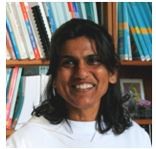
Sheena Rughubar-Reddy
The Tutor Professional Development (TPD) project is a collaborative initiative between the staff of Numeracy Centre at the University of the Cape Town and the Engineering Faculty at the Cape Peninsula University of Technology. The purpose of the project is to design and implement a model for TPD with specific emphasis and focus on tutor classroom practices in higher education courses.
The research project is based on the assumptions that: first, TPD has an overarching goal of preparing tutors to facilitate tutorials, and second, in order to advance student achievements and throughput in higher education, facilitation, such as tutor classroom practices needs to be improved. The research team would like to develop a more universal rather than a local body of knowledge for improved tutor classroom practices. The research methodology employed in this study is design-based research (DBR) in the main. However, there are also elements of lesson study involved particularly where tutors and researchers work together to design tutorials. The TPD project will be implemented in two courses, namely, Quantitative Literacy (Numeracy Centre, University of the Cape Town) and Engineering Mathematics (Engineering Faculty, Cape Peninsula University of Technology), both of which are offered to students on extended degree programmes (EDP). The aims of the TPD project are:
- To research sustainable and practical approaches to tutoring higher education courses;
- To contribute to the theoretical debates about using the cognitive apprenticeship model as a framework to TPD;
- To contribute to the classroom practice skills development of future academics within courses/disciplines; and
- To support tutors in cultivating mathematically rich learning environments for students by focussing on normative ways in which tutors engage with classroom practices.
TPDP Partners:
- Numeracy Centre, University of the Cape Town:
- Research development group (RDG): Duncan Mhakure (PI), Jacob Jaftha, & Sheena Rughubar-Reddy
- Collaborators in Numeracy Centre: Vera Frith, Renee Rix, & Muzi Manzini.
- Cape Peninsula University of Technology: Mark Jacobs.
-
Uncovering Staff Discourses About the First Generation Experience
(PI: Dr Danny Fontaine-Rainen)
Our research on the experiences of first generation university students, both in South Africa (Hamshire, Forsyth, Bell, et al., 2017; Kelly-Laubscher, Paxton, & Majombozi, 2016; Kelly-Laubscher, Paxton, Majombozi, & Mashele, In Press) and the UK (Hamshire, Forsyth, Bell, et al., In Press; Hamshire, Willgoss, & Wibberley,2012, 2013) has highlighted that some students, especially those who are first in their family to attend university do not feel that they belong at university. We feel that academics, as lecturers, play a key role in shaping the academic environment, particularly the classroom, and thus are key players in creating spaces where all students feel welcome. Tanner and Allen (2007) suggest that lecturers can create more inclusive environments by being culturally competent. In education, the term, cultural competence refers to “…how effective a teacher is for those students who do not share the same personal characteristics or the same cultural background of that teacher.” Therefore, for a lecturer to be culturally competent (Tanner & Allen, 2007) they must have a realistic understanding of the different backgrounds that their students come from. Many lecturers are not first generation students, and so one might assume that they may struggle to understand or may even be misinformed about the first generation experience. However, as far as we can see, no research has investigated this assumption. With research sites at the University of Cape Town and Manchester Metropolitan University the team is working to uncover and unpack staff discourses around their experiences working with and teaching first generation students.
Team:
- Danny Fontaine-Rainen, First Year Experience, Center for Higher Education Development, University of Cape Town (UCT)
- Roisin Kelly-Laubscher, New Avenues to Teaching Projects Officer, School of Education, University College Cork (formerly of UCT),
- Claire Hamshire, Faculty of Health, Psychology and Social Care, Manchester Metropolitan University,
- Rachel Forsyth, Centre for Excellence in Learning and Teaching, Manchester Metropolitan University
- Leza Soldaat, Research Assistant, Center for Higher Education Development, University of Cape Town

